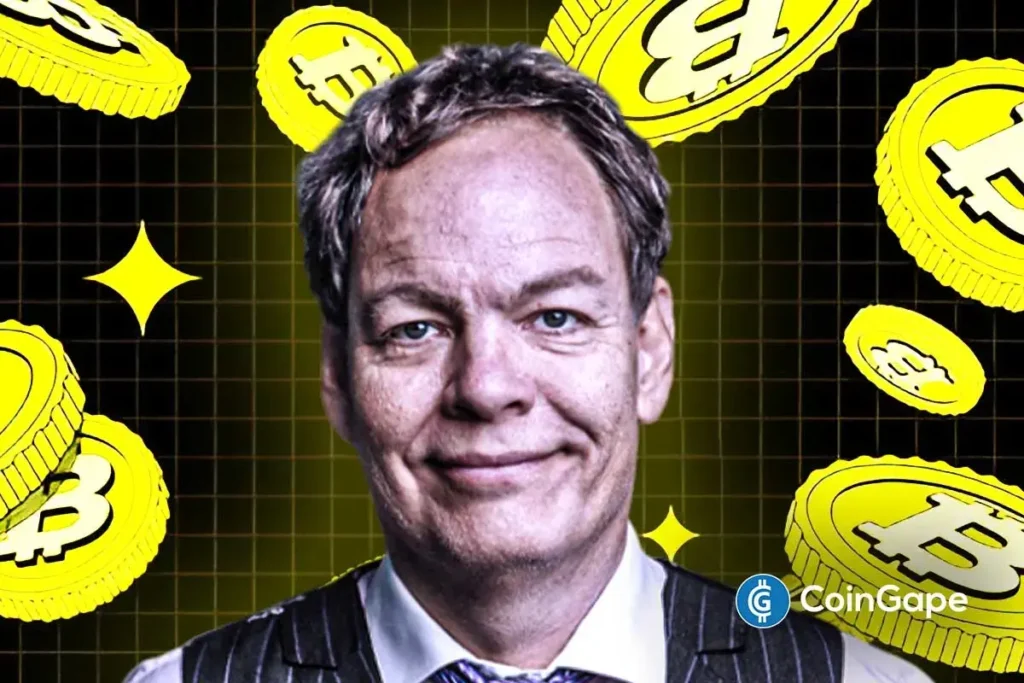Max Keiser’s Bold Bitcoin Prediction: A Hedge Against Economic Turmoil
Max Keiser, a well-known Bitcoin maximalist and financial commentator, recently made an audacious prediction regarding the future of Bitcoin (BTC) amid potential economic instability. In light of the global market conditions, particularly the concerning state of Japan’s bond market, he believes that an astonishing $250 trillion could flow into the Bitcoin ecosystem if traditional bond markets face collapse. This article explores Keiser’s insights, the implications of excessive money printing, and why he believes Bitcoin is the ultimate safeguard against economic downturns.
The Rising Stakes in Global Financial Markets
Keiser’s analysis begins with the precarious situation facing Japan, which has long been a source of cheap funds for global markets. With Japanese bond yields hitting new highs, concerns about a potential bond-selling avalanche have emerged, which could ignite a global financial crisis. In his recent remarks on social media platform X, Keiser warned that should this scenario unfold, Bitcoin could become a beacon of hope for investors seeking safer assets. He highlighted that Japan’s struggles are merely a preview of what could await the U.S. financial landscape if deficit spending continues unchecked.
This assertion gained traction after a notable decline in Japan’s stock market—dropping by 2.5%—as bond yields surged. Such disruptions indicate the fragile state of the global economy, raising alarms about the sustainability of current financial mechanisms. If bond markets falter, Keiser suggests that traditional investors may increasingly pivot towards Bitcoin, given its potential to act as a store of value during turbulent times.
The Ripple Effect of U.S. Deficit Spending
Keiser’s warning is compounded by the recent actions taken by the U.S. government. Earlier this year, the Trump administration passed the “One Big Beautiful Bill,” which is projected to inject approximately $3 trillion into the national debt. In light of this fiscal strategy, Keiser predicts that Bitcoin could rally significantly, forecasting a price surge to $2.2 million in the near future. His insights underscore a pivotal concern—that if the U.S. continues on this path of extensive borrowing and spending, it risks eroding confidence in fiat currencies.
Arthur Hayes, co-founder of BitMEX, echoed similar sentiments, contending that the cycle of money printing is only just beginning. His outlook extends through 2026, predicting that a wave of quantitative easing will sweep across the United States and globally. The implications of such financial policies seem dire, potentially accelerating inflation and driving investors towards more stable assets like Bitcoin.
Bitcoin as a Hedge Against Financial Instability
In response to the increasing pressures from monetary policies and economic projection concerns, Keiser underscores Bitcoin’s role as an effective hedge against money printing. Following a recent Federal Reserve cut in interest rates by 25 basis points, Keiser pointed out that the U.S. government’s aim appears geared towards amplifying money supply, which, he argues, will exacerbate economic imbalances and lead to a breakdown in societal cohesion.
He remarks that over the past 45 years, the financial landscape has been shaped significantly by processes of financialization and securitization, which have disproportionately favored the wealthiest individuals—the so-called “Cantillon Effect.” This systemic inequality has led to rightful dissatisfaction among 99% of the populace, who have been adversely affected by manipulative fiat currency practices.
The Call for a Shift Towards Bitcoin
Keiser urges investors to break free from the confines of traditional financial operations by turning to Bitcoin. He argues that the cryptocurrency offers a viable alternative to the current fiat-based system, which has become rigged against the average citizen. By investing in BTC, he believes individuals can not only preserve their wealth but also participate in a financial system designed to treat all participants more equitably.
Keiser’s perspective is timely, as recent statistics revealed that the wealth held by the top 1% of U.S. earners exceeds that of the entire middle class combined. This stark discrepancy highlights the urgent need for alternative avenues that can empower individuals financially. Bitcoin, as Keiser asserts, has the potential to level the playing field, allowing ordinary investors to escape the grip of fiat currency inflation and inequality.
Looking Ahead: The Future of Bitcoin Amid Uncertainty
As the global financial landscape remains fraught with uncertainties, Max Keiser’s bold predictions about Bitcoin may resonate with many investors seeking trustworthy assets. The looming threat of a bond market collapse, combined with continuous government money printing, positions Bitcoin as a potentially advantageous hedge against impending economic disruptions.
While Keiser’s forecast of $250 trillion flowing into the Bitcoin ecosystem might appear ambitious, it reflects a growing sentiment among investors who are increasingly wary of the traditional financial system. The potential for Bitcoin to solidify its status as a trusted alternative currency appears feasible as mounting economic challenges compel individuals to seek refuge in decentralized assets.
Conclusion: Bitcoin as the Ultimate Safe Haven
In essence, Max Keiser’s assertions serve as a stark reminder of the precariousness of the current financial landscape. As global markets grapple with volatility and inflationary pressures, investors may find solace in Bitcoin’s promise as both a safe haven and an instrument of financial empowerment. With the potential for significant capital migration into the BTC ecosystem, the cryptocurrency could play an essential role in safeguarding wealth against the challenges of modern monetary policy.
For those pondering the future of investment, Keiser’s insights underscore the importance of considering Bitcoin not just as a speculative asset, but as a fundamental component of a resilient financial strategy in an ever-evolving economic environment. As challenges mount, the appeal of Bitcoin as a hedge against instability may ultimately redefine its role within global finance, paving the way for broader adoption and acceptance.


